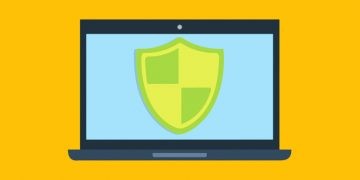How Facebook Quizzes Can Put You and Your Personal Data at Risk

Users' personal information continues to be at the top of the cybercriminals' target list. The majority of us spend at least several hours online each day, and it seems that the time spent surfing the Internet or using online services is still growing. According to Zenith, a measurement company, it is very likely that people around the world will spend more time online (an average of 170.6 minutes) if compared to watching TV in 2019. As a consequence, the number of users who fall victim to identity theft is expected to rise as well.
Cybercriminals are becoming more and more inventive with the increase in privacy-minded users. There are plenty of ways to steal personal details from users, for example, phishing schemes, online accounts hacks, and malware installation, to name only a few. Unfortunately, it has turned out recently that it is no safer to use social media as well. We do not expect you to deactivate all your social media accounts, but it is very important that you stay vigilant at all times because the information you provide on social media websites, even if these details fall into the non-personally identifiable information category, might be used against you. This will not be a pleasant experience, trust us.
Facebook, the biggest social network with more than 2.23 billion active users worldwide, is no doubt among the prime targets of cybercriminals focusing on personal information theft. You have probably heard about the Facebook-Cambridge Analytica scandal that took place in early 2018 and affected up to 87 million users in total. At that time, personal data from millions of people's accounts was harvested without their knowledge and permission and then used for political purposes. Facebook took measures to tackle this privacy problem immediately. It suspended a bunch of suspicious third-party apps and limited third-party app access to personal information available on users' profiles. Unfortunately, security measures the company took did not help it to avoid future problems linked to users' privacy.
Facebook admitted that vulnerability directly linked to the "View as" feature had been detected in the social network's code on the 25th of September, 2018, only a few months after the infamous Cambridge Analytica scandal. It could have possibly exposed 50 million Facebook users' accounts to hackers. Sadly, Facebook's privacy issues do not end here. Specialists have identified a new problem, which was dubbed Facebook quiz scam, recently. It has turned out that seemingly harmless surveys might enable hackers to obtain personal information and then use it to hack users' accounts in the future. This proves once again that the information users share online might be used for various illegal purposes.
Facebook quiz scam: the fundamentals
Social media quizzes, especially those available on Facebook, might seem to be a fun way to spend free time or bond with friends; however, they are not as innocent as they seem to be at first glance. They ask users to answer certain questions, for example, you may be asked to provide your pet's name or the city of birth. These quizzes may log personal information or ask to provide information about friends and family too. Once the quiz logs personal data provided by the user, hackers can use it to hijack the personal account. It is possible that the hacked account will be used to lure in even more victims in the near future.
Specialists say that so many people fall for Facebook quiz scams simply because they look harmless and, additionally, they do not realize that the answers they provide are very similar, or even identical, to security questions that users are asked to set up while creating new online accounts. They may be used by banks and other serious institutions as well. Quizzes logging personal data like your childhood's best friend, the first-grade teacher, or your favorite place might help cybercriminals to obtain the security questions you have set up and then use them for malicious purposes. According to specialists, quizzes logging personal data might not only be used to build a profile on users and then hack into their accounts but also to trick them into clicking on malicious links. A bunch of users realize that they have fallen victim to Facebook quiz scam only when the harm is already done and it is too late to take action to prevent privacy-related problems from arising.
What can I do to protect myself against Facebook quiz scams?
Without a doubt, not all quizzes log personal data for cybercriminals and will necessarily cause problems to you; however, you should always think twice before you share the smallest piece of information online because it is impossible to undo that. The same can be said about private messages you send to people via Messenger. As for Facebook quiz scams, providing answers to all the questions you are asked might lead to devastating outcomes, for example, schemers may build a profile on you, use the gathered data to steal money from you, and possibly impersonate you in order to steal someone else's money. Therefore, while it is, in general, OK to participate in quizzes, you should still take some measures to make sure you do not become a victim of any social media scam.
First, inspect the creator of the quiz before taking it. Is it a reliable brand that can be trusted 100%? Second, do not take quizzes that ask a lot of personal details, including your email address, your mother's maiden name, and the elementary school you attended. Last but not least, you should review your privacy settings and make sure personal details like your telephone number or your home address are not visible on your social media profile. Finally, set a strong password for your social media account so that it could not be hacked easily by cybercriminals. If you struggle to come up with a secure password for your account, Cyclonis Password Manager, a free tool for managing passwords, will generate it for you automatically. It will allow you to decide upon its type and length but do not forget one simple rule – a secure password is a complex password. The password manager will also make your life easier by entering passwords on saved websites for you!
All security specialists agree that there are many dangers users can face online these days. One of the most serious problems is, no doubt, identity theft. Phishing has always been one of the most commonly used tactics to steal personal details from users, but we would not be surprised at all if stealing the personal information over social media websites would soon become the first hackers' choice. People have never shared so many details about their personal lives as they do today. While this allows them to connect with long-lost friends and relatives who live abroad, sharing so many personal details online might pose serious privacy-related problems. Generally speaking, the amount of personal information people share online these days makes it easier for hackers to access details about users' personal lives, which may lead to identity theft. Do not let cybercriminals thrive by obtaining personal information illegally – pay more attention to your online privacy.








